
views
Creating a Daily Routine

Spend a day recording everything you do. Carry around a planner, notebook, or mobile phone with a calendar app. Write down the start and end times for every activity, no matter how small. At the end of the day you'll have a list telling you exactly how you spent the day. If today is not a typical day for you, make another list tomorrow, or even one for each day of the week.
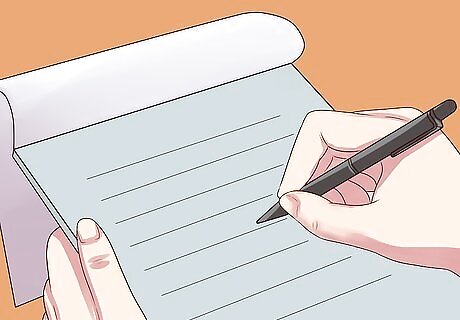
Reduce unwanted activities from your day. The goal is to tweak your actual schedule to form your daily routine, instead of trying to invent a completely new plan for your day. Look over your list of activities for the day your record. Decide which ones you'd like to spend less time on, such as procrastination or social media. Cross out some of these activities from your list.

Write down productive activities to replace unproductive ones. Count the amount of time saved by removing the unproductive activities from your day. Write down activities that could fill that time, such as work, studying, housecleaning, or other productive activities.
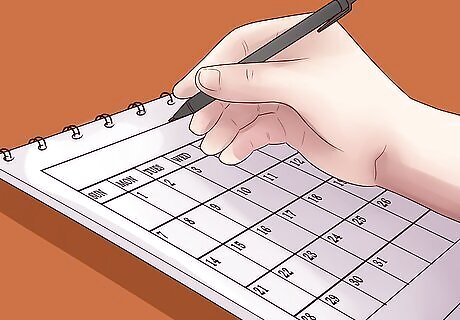
Arrange your day into a schedule. Using the schedule from your actual day, and the list of changes you'd like to make, write down a routine you can follow. You can rearrange activities into any order you like, but don't change the amount of time they take. If it took you thirty minutes to have breakfast today, assume it will take you thirty minutes tomorrow as well. For new activities you're adding to the schedule, guess how long they'll take, then allow about 1/3 more time than you guessed.

Set aside enough time for sleep. Most adults need 7–8 hours of sleep a night to stay alert and high-functioning. Children and teenagers often require 9 hours or more. Schedule a bedtime and wake up time that gives you plenty of sleep, or your daily routine will not be sustainable.
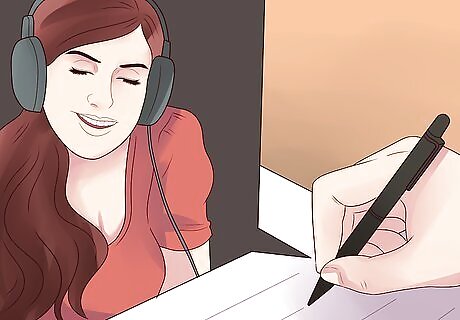
Make time for breaks and interruptions. If your rough draft of a routine is chock full of activity from the moment you wake up until the time you go to bed, you'll probably burn out or fall behind the first time something unexpected happens. Adjust your schedule to allow for at least one 30–60 minute chunk of free time if possible, and several 5–15 minute breaks in between productive activities. Breaks make you better. "I always remind myself, 'you're a human with very human needs, and your brain needs to rest.' If I feel like I need to take a walk in the middle of a task in order to feel my best, I do it. It always makes me focus more easily when I come back to what I was working on and makes me feel more proud of myself at the end of the day. I always try to internalize the idea that breaks are okay, and give others grace to take breaks as well. -Sydney, a busy full-time employee

Try out the routine for a day. Give the schedule you wrote down a test spin. Do your best to follow the routine exactly. If you do not, write down what you did differently from the schedule, and why.

Change your schedule based on your experience. Sit down at the end of the day and look at your schedule. If one of your time estimates turned out to be unrealistic, allow more time for that activity and cut something less important out of your day. If you finished an activity more than 20 minutes early, allow less time for it in your schedule. Finally, if the order you did your activities was inconvenient or didn't feel right, try shuffling the activities in a different order.

Repeat until you can follow the schedule. Try following your schedule again after making changes. If you are having trouble doing so, continue to make adjustments and keep trying. If you are having trouble following the routine, read the advice below.
Motivating Yourself to Follow the Routine

Adjust to your natural rhythm. Each person's body has a different natural schedule, or circadian rhythm, that helps determine when that person feels tired or alert. Try to create a routine that uses your most alert times of day for activities that require mental and physical effort, and give yourself time to relax during the times of day when you feel tired or have trouble thinking. For advice on discovering or adjusting your natural rhythm, talk to a doctor, or get a rough idea with an online survey.

Find a way to start your day. If your mornings feel rushed or confused, they may be the weak point in your daily routine. Experiment with different options until you come up with a very specific routine that you can start every day with: Start the day out with a glass of water to rehydrate and wake up, followed by coffee or tea if you drink it. Use a stretching or light exercise routine to wake yourself up. The sun salute is a popular example in yoga. Have the same breakfast ready each day, or at least decide what you're eating for breakfast the night before.Try reframing if you're having trouble. "Every time I've tried to commit to a specific routine that I do every day, I fall off it and get mad at myself, thinking 'I'm not doing enough.' Instead, I've realized that my personal version of routine is never going to be waking up every day at a specific time and doing specific activities. Instead, my version of routine is going to be what feels best for me as I'm waking up, like deciding whether to read or go for a jog. I have the most success with routine when I don't think of it as so day-to-day rigid, and instead as a combination of little things I want to focus on to make me happy." -Dylan, 27 year-old

Think about your routine twice a day. Take at least 10 minutes each morning to look ahead to your day. If you have an extra obligation today, a temporary source of stress in your life, or another reason today is unusual, decide which activities can be skipped today if you need to. At the end of the day, look back and think about how that decision went, and whether you could improve your routine.
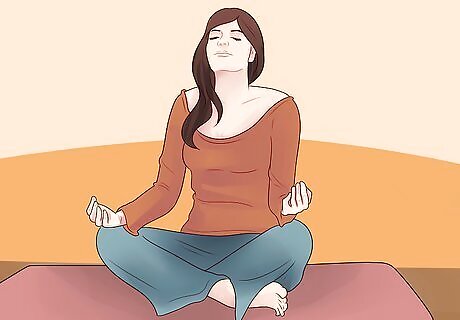
Find activities that refresh you. You should have at least a couple 5–15 minute breaks scheduled even in the busiest day, to refresh yourself and get you ready for the rest of your routine. If you tend to feel stressed during these breaks, or if they suck you in and end up taking much longer than they should, find a different activity. Here are some suggestions: Light exercise, such as walking or jogging, can refresh and energize. A fun activity with a clear end time makes it harder to overextend your break. For instance, find a 15-minute podcast episode, or read one chapter of a book. If you're exhausted, lie down with your eyes closed or meditate to regain your strength. Set an alarm clock if an urgent task is coming up.

Motivate yourself with sound. If you often lose track of time, set an alarm on your mobile phone or watch whenever you begin an activity, so you know when to move on to the next one. You can use music instead as a more pleasant motivation, organizing your music into playlists or categories based on the type of task you're working on. For example: Choose non-distracting music with a steady beat when you need to concentrate. Choose calm music when you're relaxing, or working on low-key personal projects. Choose loud, energetic music if you're tired and really need a boost.

Prevent procrastination. Get rid of distractions in your work area. If you work on a computer and procrastinate online, block websites that waste your time.
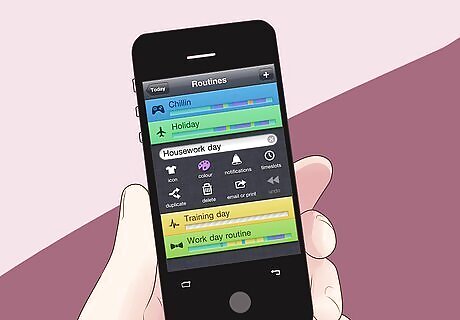
Use electronic productivity tools. There are all kinds of tools out there that can motivate you, remind you, or give you virtual rewards for staying productive. Try HabitRPG if you are motivated by games, or any number of calendar programs to remind you of the next task.

Avoid disruptions to your sleep schedule. Blue light from electronic screens can prevent your body from releasing sleep hormones. Minimize computer, phone, and television use late at night, or install Flux to change the color of your screen at night. Caffeine, alcohol, and other drugs can also make it much harder to get a restful night of sleep.



















Comments
0 comment